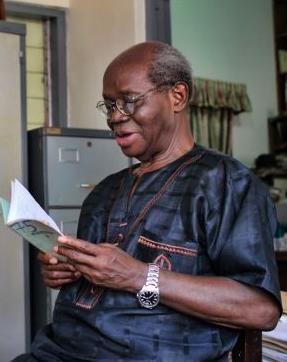
György Ligeti freely acknowledged the influence of African music on his work—an influence that is seldom readily obvious, though it can be teased out by analysis.
After he listened to recordings of African drumming, Ligeti began exploring the use of various rhythms through multiplication of the basic pulse, a concept that resonated with the additive rhythms of the traditional music that he grew up with in Hungary.
In one of his few passages involving the use of an African-sounding instrument, the third movement of his piano concerto includes an Africanesque pattern played on bongos. He marked the part to be played very quietly, so rather than being foregrounded it serves almost subliminally to reinforce patterns being played simultaneously on other instruments. Unlike most African drumming, this bongo pattern evolves over time, so that its end is quite different from its beginning.
Ligeti’s works from the 1960s onward were distinguished by a palette of musical motives and ideas that he half-ironically referred to as Ligeti signals. Starting in the 1980s, he expanded this palette to include African devices along with others that share an extraordinary openness to external ideas and influences. He avoided copying these influences wholesale, instead working on a higher conceptual level. This abstraction implied an objective respect for the powerful ideas he was working with, as well as indicating a strong personality able to hold its own with them.
This according to “Ligeti, Africa, and polyrhythm” by Stephen Andrew Taylor (The world of music XLV/2 [2003] pp. 83–94; RILM Abstracts of Music Literature 2003-4435).
Today is Ligeti’s 100th birthday! Below, Mihkel Poll performs the concerto movement discussed above.
BONUS: RILM is a sponsor of the Ligeti Festival Transylvania celebrating György Ligeti’s 100th birthday! More information is here.



